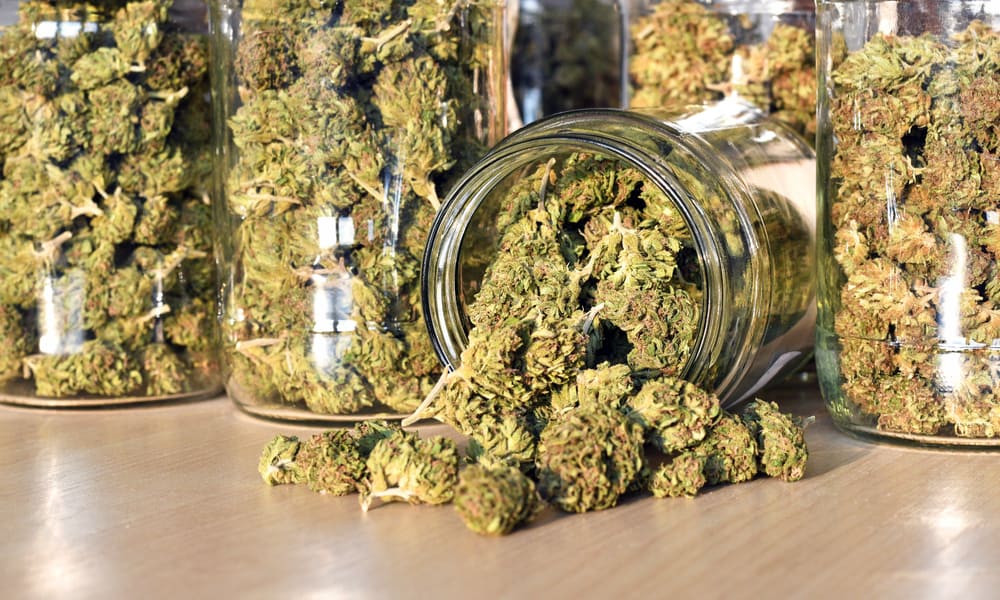The cannabis industry is expanding with legalization measures becoming law in various states across the country. A recreational Cannabis legalization bill and taxation act (CRTA) was approved by Illinois Gov. J.B. Pritzker’s after the Illinois House voted to pass the comprehensive measure on July 25th, 2019. “This will have a transformational impact on our state, creating opportunity in the communities that need it most and giving so many a second chance,” Pritzker said in a statement. “Illinois is poised to become the first state in the nation that put equity and criminal justice reform at the heart of its approach to cannabis legalization, and I’m grateful that the Senate has taken this important step.”
The law went into effect on Jan. 1, 2020, with medical cannabis businesses allowed a head start to apply for licenses in the new recreational market. New dispensaries were licensed by May 1st, with craft growers, transporters and processors being licensed by July 1st. A second wave of businesses would be licensed in late 2021.

Cannabis legalization in Illinois maps the licenses in two rounds, effectively for transporters, stores (called dispensing body), new cultivation facilities, processors and craft growers. The first round would take place in mid-2020, the state would award licenses for up to 40 craft growers, 75 stores and 40 processors. The second round would take place in December 2021, the state could issue licenses for 60 craft growers, 110 stores and 60 processors. None of the individuals or entities are interested in more than three cultivation centers or 10 stores.
The first application window for new dispensaries opens by October 1, 2019 and will close by January 1, 2020. For craft growers, the first application window will likely open in early January 2020.
Under the system, the state of Illinois has decriminalized personal amounts of cannabis, adults could buy and possess up to 30 grams of cannabis “flower,” along with marijuana-infused foods known as edibles, and small amounts of highly concentrated extracts. Non-residents could buy half the amount. Regarding cannabis cultivation at home, up to five cannabis plants would be allowed. The Cannabis legalization law also establishes a system for taxing and regulating marijuana, and consumers would pay up to 34.75% tax on their purchases, depending on potency.
What makes Illinois’ Cannabis legalization law unique?
Under the new law, the state will provide financial support to the minorities interested in Cannabis industry. The Cannabis Business Development Fund will help the Illinois minority entrepreneurs with lower licensing fees and low interest business loans. The bill allocates $12 million to the fund as well as a portion of the fees charged for Cannabis licenses.
“A person pursuing one of these businesses cannot get a traditional bank loan,” says Edie Moore, executive director of the Chicago branch of NORML, a Cannabis legalization advocacy group that worked with Illinois lawmakers on the legislation.
In addition to financial support, the law will establish marijuana job training programs at community colleges. The courses will cover a wide range of topics from growing cannabis plants to establishing business best practices. As per records, up to eight schools will roll out these programs by September 2020, five of which must have “a student population that is more than 50 percent low-income.”
In order to take advantage of the opportunity, new recreational marijuana organizations must be aware of every legislation in Illinois’ marijuana space. It includes physical security requirements that, if left unattended, will be problematic for dispensaries looking to get off the ground.

Dispensary Applications open 10/1/19 and Close 1/1/2020
There is an entire section of the application that requires a thorough "Security Plan"
Security Plan for Dispensary Applications
The Security plan that goes into the application plays a meaningful role in the acceptance process. This plan covers everything from the process, the physical layout of electronic access control and video surveillance to how employees are trained in emergency situations.
It delivers significant detail as to cash-management and inventory control but fundamentally it’s a framework that proves that your cannabis business is ready for the responsibility to make security a top priority.
A weak security plan for your cannabis application can result in your application being denied. There are plenty of areas in your business to be frugal in your start-up business- Security is not one of them.
It’s important to have a security professional conduct a complete audit of your physical security needs to ensure compliance… Contact Umbrella Security Systems today to learn how we can help your recreational dispensary meet legislation standards. We proudly provide cost-effective and scalable cannabis security system solutions with over 17 years of experience in integrated security systems with clients in a variety of complex industries, including the marijuana industry.
Our process is unique and simple.
We conduct an in-depth on-site Physical Security Assessment. We want to do the best for you at an affordable price with our ongoing support and services. Share with us your past experience that worked or didn’t work and how would you like to do it better or different this time. Our service will exceed your expectations!
Our process starts with diagnosing your current security systems such as current access control, video surveillance, material control, and other electronic security systems. Create documentation of drawbacks and strengths of your system as well as cable routing. This process greatly reduces labor costs, any potential issues with your security system as well as saves time. Then perform in-depth analysis and conduct on-site physical security assessments. These on-site security assessments include (s) but are not limited to; perimeter and building access control, fencing, area, and glare projected lighting systems, employee identification systems, Closed Circuit Television (CCTV) systems, Electronic Security Systems (ESS) and Radio Frequency Identification Systems (RFID).
Best recommendations and solutions are provided to increase the effectiveness of the security program with latest technologies suitable for your need to identify any vulnerabilities. These recommendations are based upon various industry standards, governmental regulations and aligned with the security requirements for Cannabis legalization in Illinois.
To receive a free overview of our 3-Step-Process to Security your cannabis business from Application to Grand Opening Contact Us.

